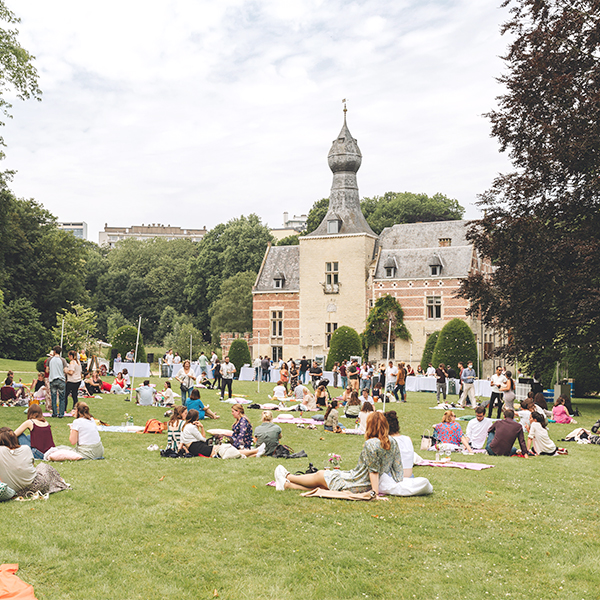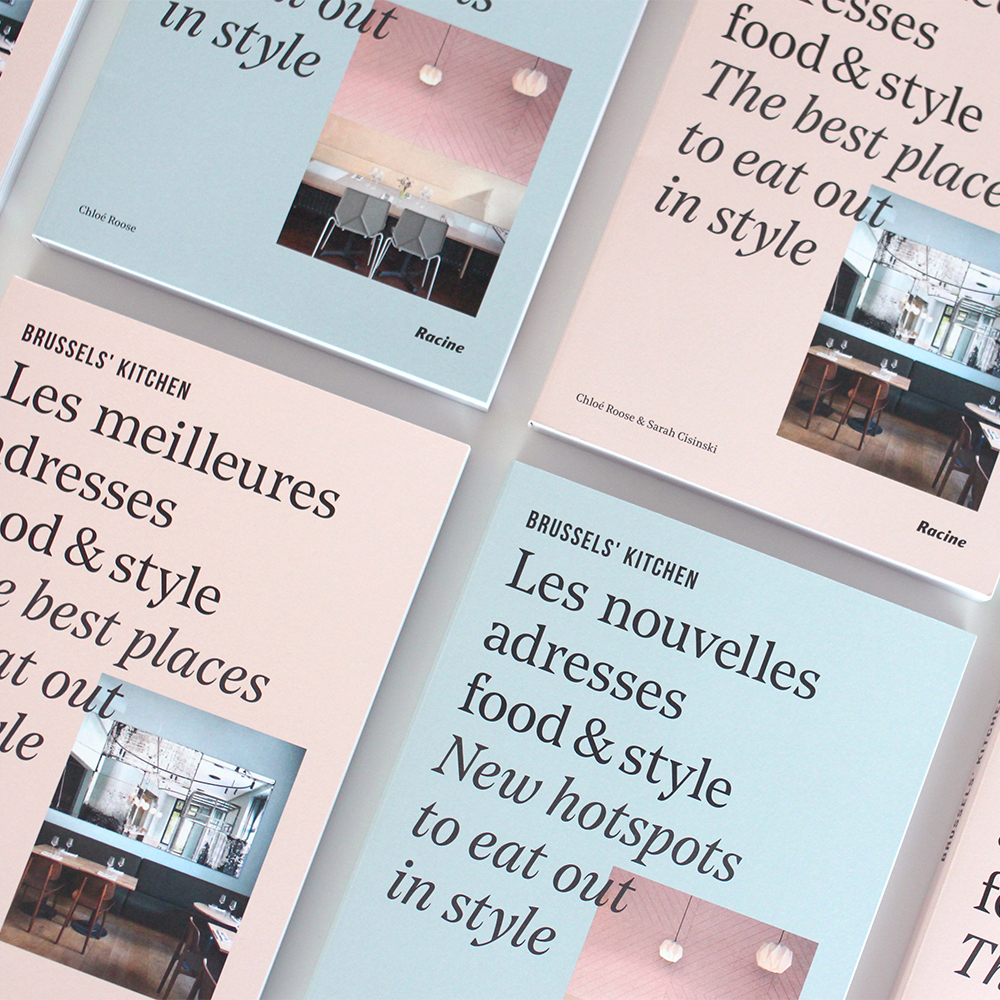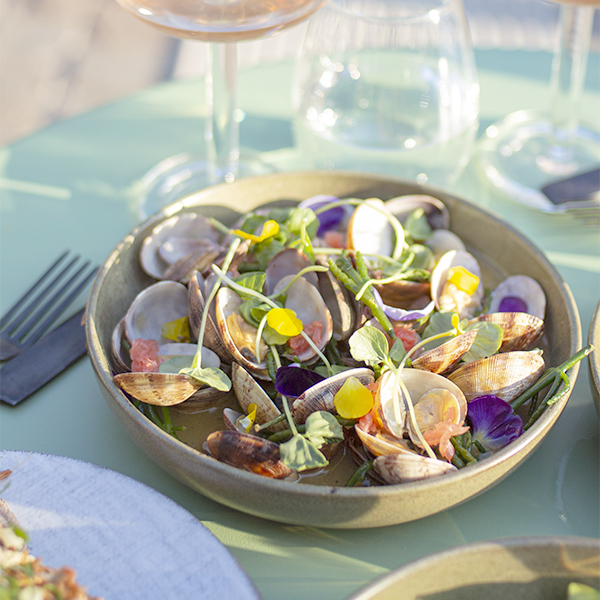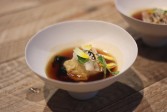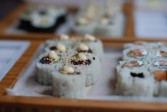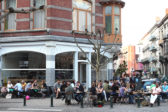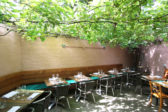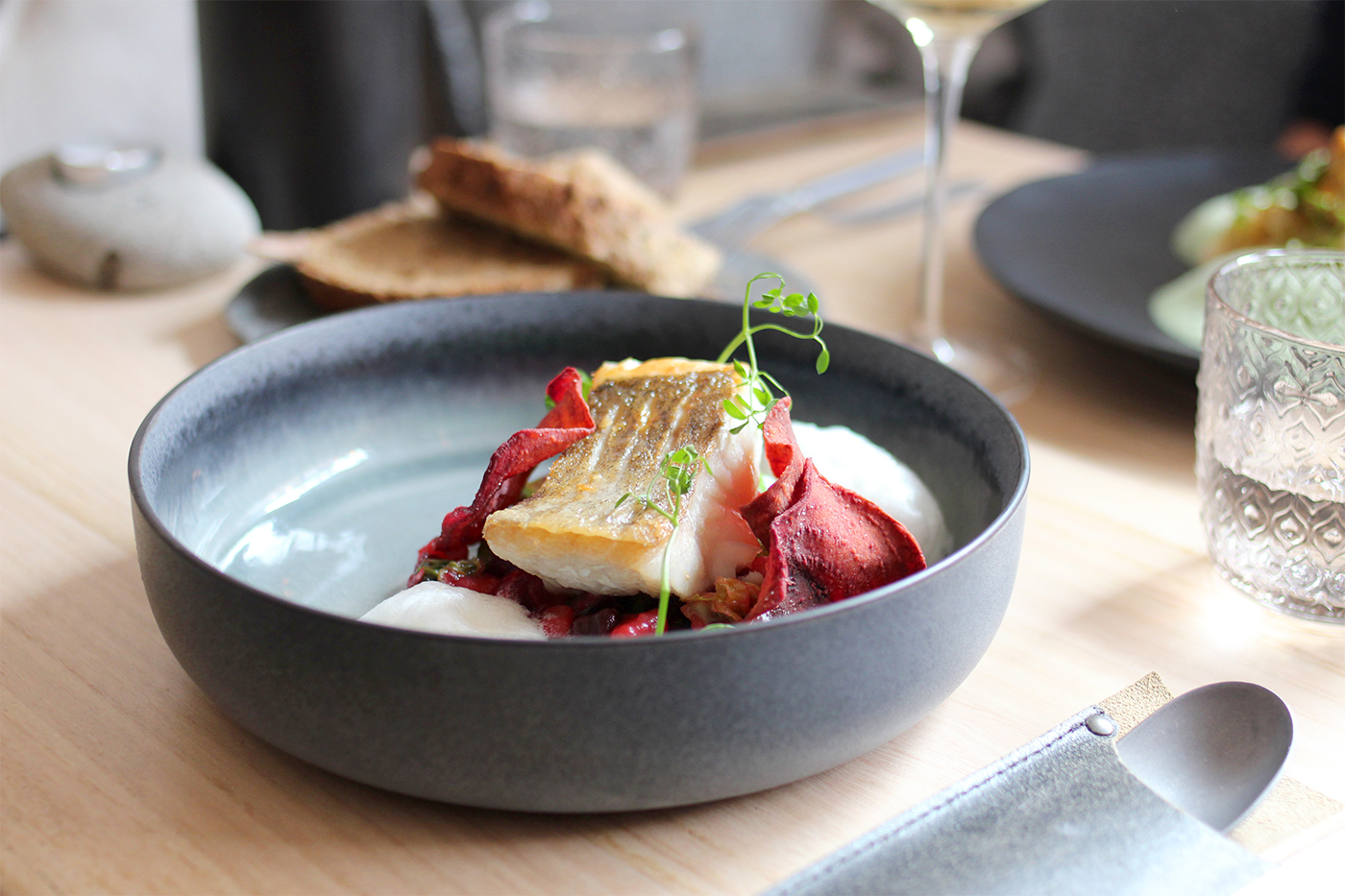
For 2
2 pieces of Pollock of 150gr each
2 beetroots
2 potatoes
half a green cabbage
1 onion
250ml milk
1 lemon
6cl vodka
olive oil
salt & pepper
Pollock, vegetable Borsch, vodka-lemon foam
Bring a pot of water to a boil, and cook the beetroots during 40 minutes. Add the 2 potatoes and let cook for an hour extra while slightly boiling. During that time, peal the leaves off the cabbage. Bring another pot of water to a boil. Once boiling, cook the cabbage leaves for 5 to 6 minutes, then directly plunge them into iced water to stop them from cooking. Once they are cold, remove the stems, then cut the leaves into 2 to 3cm squares. Keep in the fridge.
Pour the milk in a small pot, grate the lemon zest of half a lemon, add the vodka and salt and pepper. On a baking sheet, lay the pieces of fish with a few drops of olive oil, salt, and store in the fridge.
Once the beetroot and potatoes are done cooking in water, check with a sharp knife if they are cooked thoroughly: it should be really easy for the knife to go through. Once they are cooked, fill the pot with cold water to stop them from cooking more. Peel the skin off of the beetroots and potatoes with a knife, then cut them into 2 to 3 cm cubes. Peel the oinion and dice it into small cubes. Preheat the oven at 180°C. Heat a pan, add some olive oil and cook the onions without coloring them. Add the beetroots and potatoes, and salt and pepper to taste. Heat at low heat for 5 minutes.
Cook the fish in the oven for 10 to 15 minutes, depending on its thickness.
Turn the heat on under the milk/vodka pot, until the mixture is warm.
Add the cabbage to the potatoes and beetroots, and let cook at low heat.
At the center of a plate, pour 2 to 3 tablespoons of vegetable borsch, then place the Pollock on top. Before serving, mix the warm milk with lemon and vodka with a hand blender, until it forms a foam. With a spoon, add a bit of foam around the fish directly onto the plates.
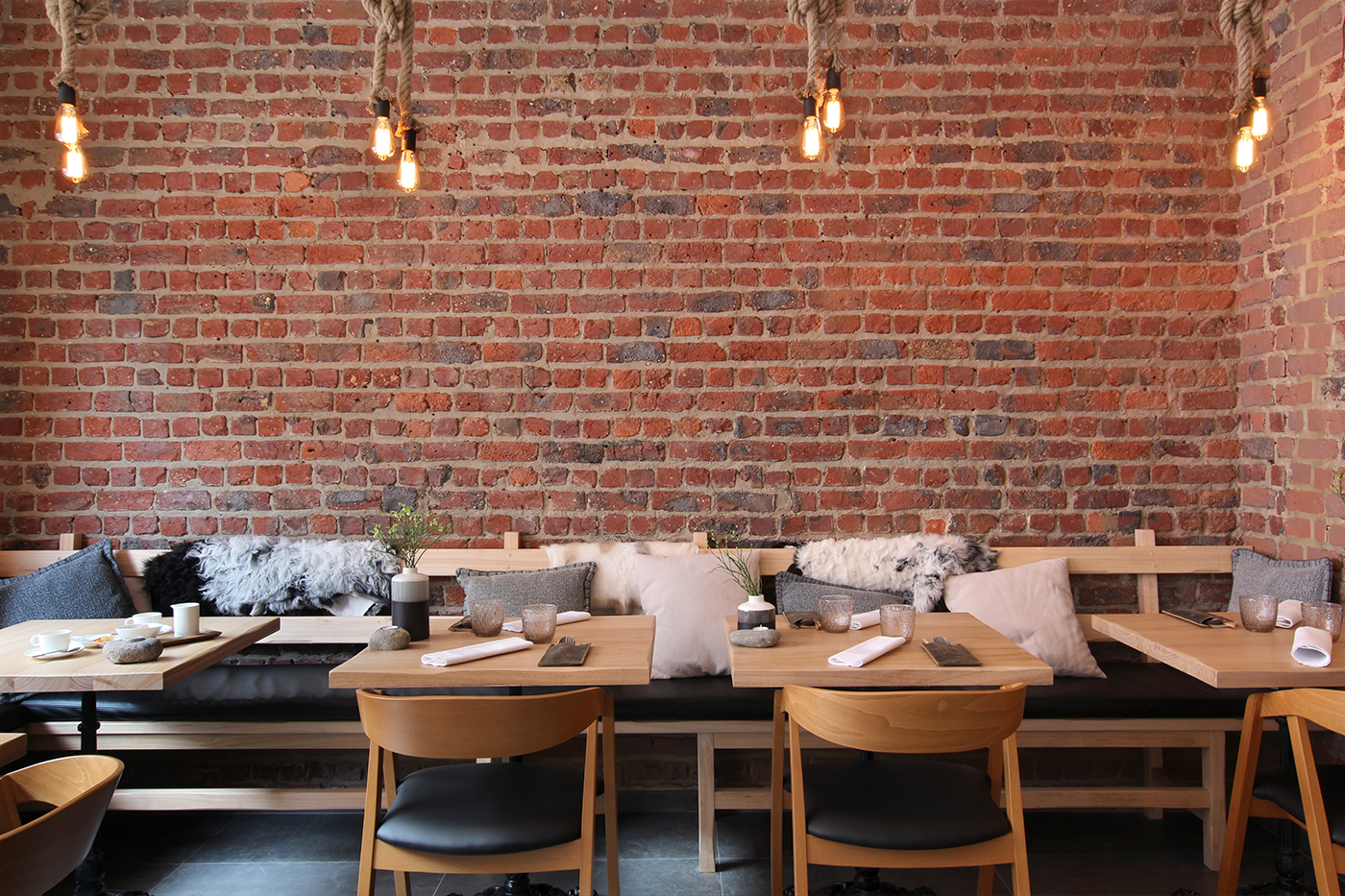
Can you tell us more?
I like working with seasonal ingredients, and always treat them with care and respect, especially when it comes to minimizing waste. I realize that even more now that we’re staying home. Those are principles pushing me everyday at the restaurant. I think it’s important to make the effort not to work with vegetables and fruits when they are not in season, cook only high quality sustainable meat: it’s the philosophy we have at Coquum.
I really love working with fire, too. I do a lot of smoked and burnt things. For example, during this lockdown, we’ve cooked a lot of thing straight on the fire, in our living room’s chimney. I also love working with jars. The thing is: I love to make gourmet food, using the same techniques our ancestors would: drying and salting our meets and fish, cooking on the fire, preserving in jars : those are all things I want go back to. Go back to something real, and make it gourmet. You can get a very fancy end result using those simple and authentic cooking techniques – both modern and surprising. That’s what inspires me.
And I get called the Viking for that!
Your strongest food memory?
My parents live next to a farm, and when I was a kid, we would kill a pig every six months or so, and make sausages. We would also pick vegetables and fruits directly from the garden. Those are things that stuck with me. Maybe I also have a bit of a farmer side too.
About the things I’ve eaten, I think my grandmother « tarte au suc’ » (sugar pie), something simple, homemade dough, butter, double cream. She still makes it for me up till this day. It is those simple things I love the most. The smell of warm fresh bread in a bakery, of sausages drying, of my grand-mother’s pie. Simple things that stick with you. Sunday’s roast chicken with freshly hand-cut fries, with the whole family. Because that’s what’s most important in the end, it’s all about the people you share your meal with. I’ve eaten in amazing world-class restaurants, but what’s most important to me is the food, the way it’s served, and the people you share it with: these are the ingredients making a moment unforgettable. Gourmet cooking is a true art, it’s somehow magic even, but sharing a simple comforting meal with friends or family, with a good bottle of wine, is at least just as magic.
Your favorite place in Brussels?
I really loved Barge, I like their vision of cooking. There is Damien Bouchery that I love too, even though it’s been a while since I’ve been to his restaurant, it’s a place I still strongly remember. Those are places with a strong vision behind their cooking, and that’s what I find interesting.
Also, outside of Brussels, in Belgium, there is Cuchara in Lomel. They’ve just got their second Michelin star. I think I had tears in my eyes when we left after dinner. It was a wonderful experience.
And for a simple lunch, we like to go to Hanoï Station, near the Cinquantenaire, they serve good street-food which I like, and make a great Pho, very close to what I remember tasting in Vietnam.
